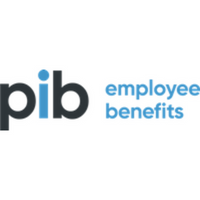5 practical ways to support employees’ emotional health
In today’s fast-paced and demanding work environment, employees often face challenges in their personal lives that can significantly hit their emotional wellbeing.
Family and life events can cause stress, anxiety and even depression. As an employer, understanding and supporting your employees during these challenging times is not only compassionate, but also essential for maintaining a healthy, engaged and productive workforce.
Whether employees are going through bereavement, welcoming a child, buying a house, facing a serious illness, or feeling overwhelmed by everyday concerns and the cost-of-living crisis, not everyone’s experience of these events is the same.
It is clear that some of the wider macro issues such as uncertainty, financial concerns and general political instability over the last few years have and are continuing to have a big impact on everyone and contributing to an insidious decline in everyone’s mental wellbeing.
Companies need to ensure their strategy is flexible to cater to diverse needs, and underpins a supportive culture for employees and line managers.
So – how can organisations promote good mental health and provide meaningful assistance to employees during challenging times?
Access to counselling and support services
When employees are dealing with family or life events, it can be immensely helpful to have access to professional support services. Many organisations already have access to mental health providers to offer counselling or listening sessions for their employees as part of their insured benefits.
Consider supplementing these with resources with information about employee network groups, helplines – including the employee assistance programme – or community organisations that can offer assistance during difficult times.
It’s critical that companies take a proactive approach and encourage employees to seek help early.
Measuring impact
It is becoming increasingly important for organisations to understand, track and measure the impact of the support services they are making available to their employees to ensure that investment is focused appropriately and delivering a positive return on investment (ROI).
Without measurement it can be difficult to understand what support is being used and by which groups at which stage. Preventative and early intervention services to positively build an individual’s resilience and support their overall health and wellbeing not only deliver a better outcome prognosis but can be much more cost effective and deliver a greater ROI.
Traditional reactive support is needed, but understanding the use of intervention services at each stage can help drive evidence-based investment and identify where there may be gaps and an opportunity to expand your preventative provision.
When measuring impact, organisations need to consider both quantitative and qualitative data and a wide range of other metrics that may not always be directly associated with wellbeing, such as staff turnover rates and engagement levels.
Understanding the demographics of your employee population will also inform your understanding of the data. Although measuring the impact of wellbeing may not be easy it is crucial to making informed data driven decisions that shape your wellbeing strategy, initiatives and investment in support services and benefits.
Offer flexible working
Life events such as births, deaths, or family emergencies often require employees to take time off or adjust their schedules – often at short notice. Individuals may also be caring for older family members, sometimes while also caring for children and dependents.
Offering flexible work arrangements, such as remote working, flexible hours, or compressed working weeks can all help people adjust their working schedule around their personal lives.
Being accommodating to employee needs can reduce additional stress they may face in managing and balancing both personal and professional responsibilities and can support other diversity, equity and inclusion programmes and progress towards gender pay gap projects.
Focus on education and engagement
Employee wellbeing programmes are most effective in a supportive workplace culture. Companies should aim to ensure that all employees are aware of the signs, symptoms and triggers of poor mental health in themselves, colleagues or family members, by providing educational resources and training programmes.
It doesn’t have to be complex. It’s relatively easy to arrange workshops and webinars that focus on stress management, resilience building and coping strategies. By educating employees and training line managers with the tools and knowledge and confidence, you empower them to take control of their mental health and seek support when needed. The important piece is to start the conversation and help individuals get to the right support.
Train managers and employees
Managers are typically the frontline when it comes to navigating an employee’s life event, and companies should equip them with the skills to provide support that extends beyond approving additional leave.
Managers and employees should be taught to identify signs of distress and be supportive and considerate during challenging times. Providing training on mental health awareness, listening, appropriate ways to offer assistance and where to direct individuals to for support can foster a more compassionate work environment.
When it comes to big life events, companies need to be human focused. Consideration, compassion and support can go a long way to nurturing a happy, healthy and productive workforce.
Providing that support doesn’t have to be difficult or complex, but it needs to start with culture and recognition of every employee as an individual.
For more information on how PIB Employee Benefits can help you support your employees, get in touch.
Supplied by REBA Associate Member, PIB Employee Benefits
PIB Employee Benefits is a forward-thinking consulting business.








